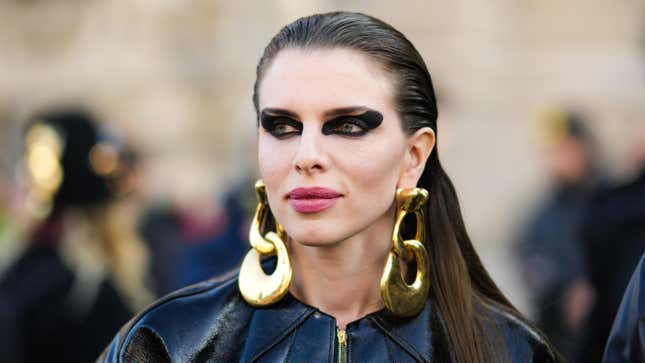Julia Fox Didn’t Realize ‘Mascara’ Was Code for Sexual Assault on TikTok. Neither Did I!
The backlash against Fox—or anyone who doesn’t have a mental dictionary of TikTok speak for traumatic experiences—feels misplaced. Not everyone is that online.
Entertainment

I was approximately today years old when I learned that “mascara” and having your “mascara” taken are apparently code words for sexual assault in some corners of TikTok—a lesson that I learned in tandem with Julia Fox and a lot of other people on Friday.
It all started when Fox found herself in a ~situation~ that could only possibly happen in the year of our lord 2023, when she commented on a viral TikTok in which a user alludes to having their “mascara” stolen. Fox cheekily wrote on Thursday, “Idk why but I don’t feel bad for you lol,” thinking the user was just being overdramatic about having a literal tube of mascara stolen. But the comment sparked a wave of online backlash that was as aggressive as it was confusing: TikTok users rushed to accuse her of mocking a survivor and condoning sexual violence, and they posted screenshots of Fox’s faux pas to Twitter.
By Friday afternoon, Fox had replied in the best way one could expect a celebrity to engage with something like this: “Hey babe I’m so sorry I really thought u were talking about mascara like as in makeup. I’m sorry that happened to u,” she posted. She also shared a series of TikTok stories further explaining, “So, I commented on a video because I thought this guy was talking about getting his mascara stolen, and then lending it to some girl who lent it to her friend. I read it and it just seemed so dramatic in that video, and I was like damn, don’t catch a case, it’s just mascara. But it was, in fact, not just mascara.”
-

-

-

-

-

-

-

-

-

-

-

-

-

-

-

-

-

-

-

-

-

-

-

-

-

-

-

-

-

-

-

-

-

-

-

-

-

-

-

-








































